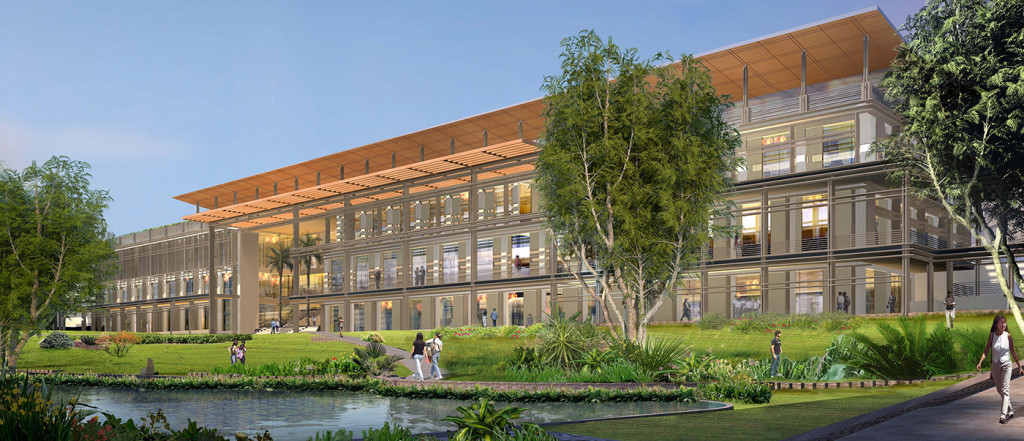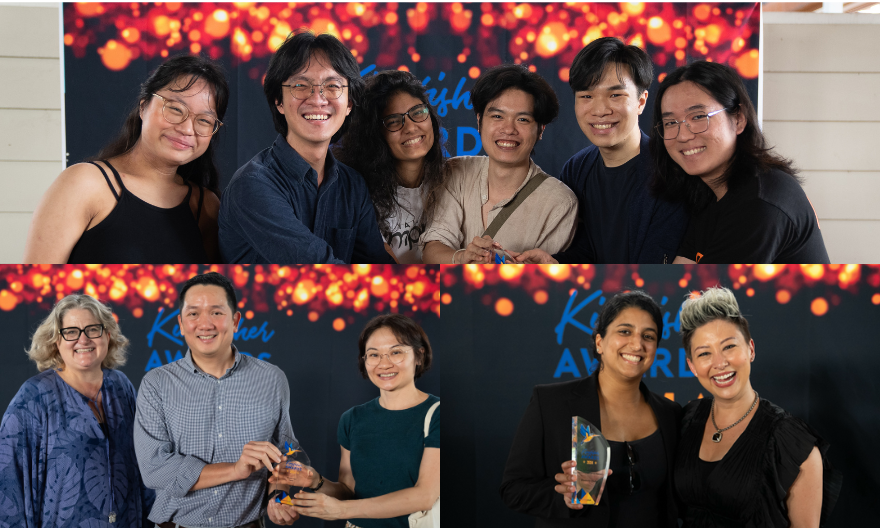Yale-NUS is the first educational institution recognised for landscape excellence

The new Yale-NUS campus has received an accolade for its efforts in integrating high-quality landscaping design.
The College has received the Landscape Excellence Assessment Framework (LEAF) certification given out by the National Parks Board (NParks) to recognise its efforts in designing and implementing ecologically friendly landscapes.
This is the first time an educational institution has received the LEAF certificate since it was launched in 2013.
The Design and Construction team involved in handling the construction of the campus was elated when they heard of the win.
“The entire project team is thrilled to have received this acknowledgement from NParks of the thoughtful landscape design for Yale-NUS College,” said Mr Mark Francis, the project director.
“As a custodian of the magnificent heritage trees on site and with the privilege of building a learning environment in a city committed to the sustainable garden, we are proud to be the first educational institution to be recognised for landscape excellence,” added Mr Francis.
Designed by Pelli Clarke Pelli of New Haven, United States, and Forum Architects of Singapore, the new campus was envisioned as a learning landscape – one that would extend learning beyond the classroom to the common spaces. With open spaces that provide opportunities for students to explore their varied interests, as well as shared spaces for informal connections and conversation, the campus design reflects the openness, energy and optimism of the College’s curriculum.
The Residential Colleges (RCs) have been deliberately designed to integrate green spaces with residential architecture. Each RC has a central courtyard with a large flat central lawn and sky gardens which boast signature trees and plants. Selected for their botanical, historical and cultural significance, the plants reflect each RC’s special characteristics. For instance, RC1 will have rubber and nutmeg trees – plants that are significant in the history of Singapore; RC2 will have ferns and palms that are ubiquitous and well-adapted in Singapore, while RC3 will have plants such as clove trees that contributed to the region’s economic development.
Across the three RCs, thirty sky gardens and eighty-five roof gardens create communal spaces and pockets of greenery that are tightly integrated with the architecture. Each RC will have plantings based on a specific colour theme – purple, pink or yellow, hence giving each a distinctive look.
Another key feature of the new campus is the Campus Green, a central green space that was built with the theme of “Evolved Tropical Forest” – different layers of plantings that are cultivated to resemble a multi-layered tropical forest. Six existing mature trees have also been conserved on site, anchoring the design concept.
Members of the Yale-NUS community will be able to enjoy all these green features when the campus opens in 2015. Earlier in May 2013, the College received the Green Mark Platinum Award from the Building and Construction Authority (BCA) for its efforts to integrate green building designs at the new campus.





